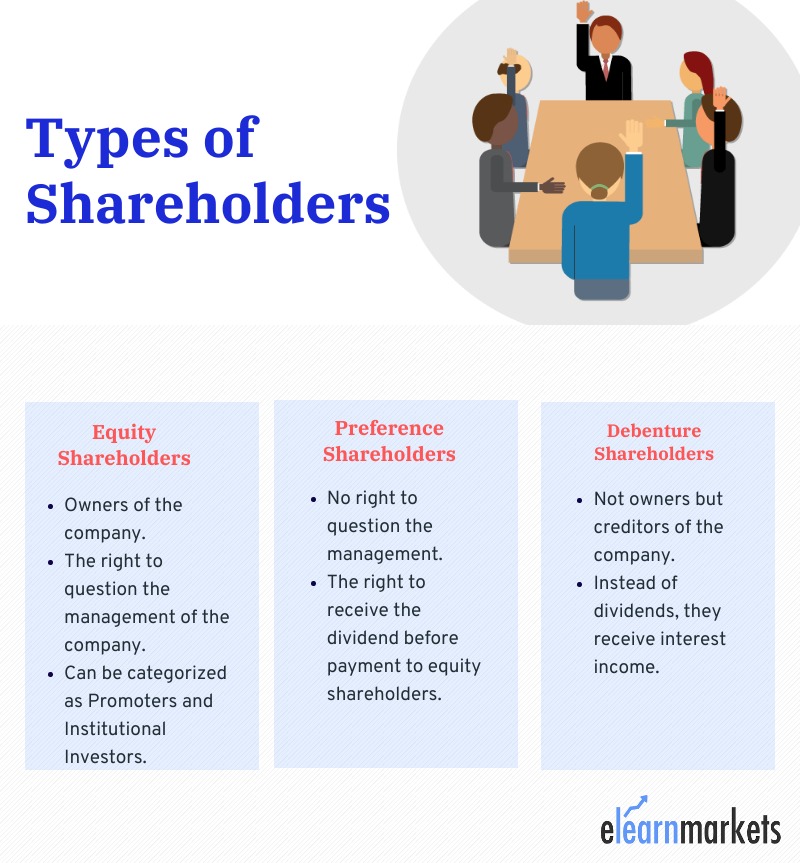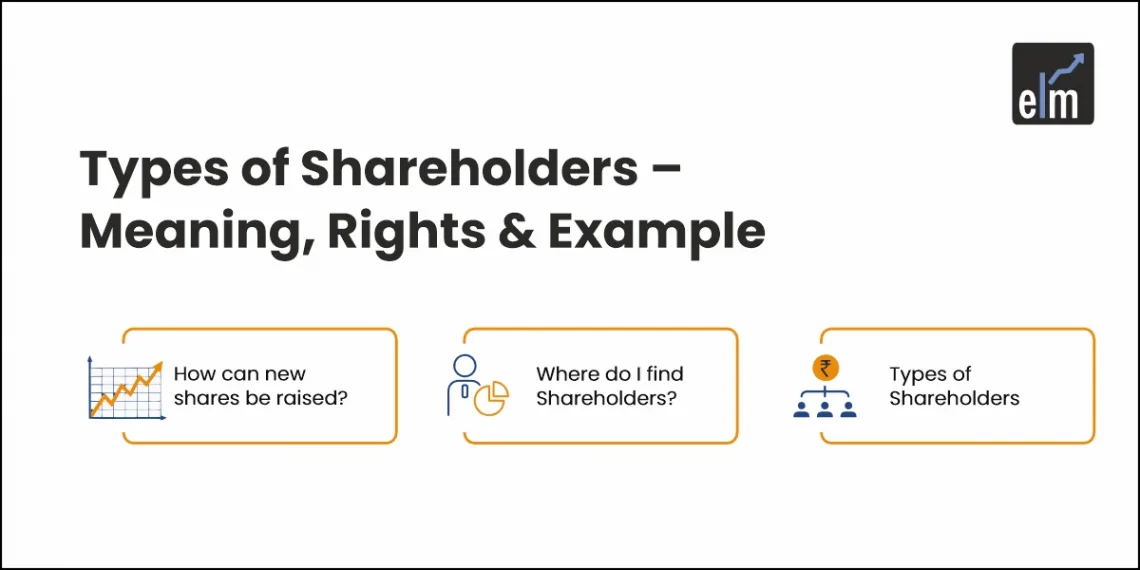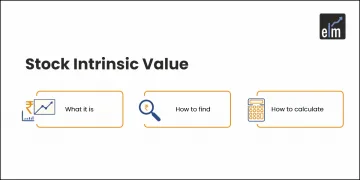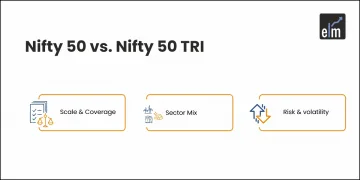Key Takeaways
- Shareholders are part owners: Individuals or institutions holding a company’s shares become partial owners and enjoy specific rights based on their share type.
- New shares raise company funds: Companies issue shares through IPOs, FPOs, Rights Issues, or other instruments to raise capital for growth or expansion.
- Different shareholders, different rights: Equity shareholders have voting rights and ownership benefits, while preference shareholders and debenture holders enjoy fixed returns without control.
- Shareholding pattern matters: Promoters, FIIs, DIIs, and public investors each reflect market confidence and ownership strength in the company.
- Investor confidence is key: A higher promoter stake and strong institutional presence indicate stability, research-backed trust, and long-term growth potential.
Companies, when want to expand or grow in a business, needs to raise funds from the market by way of issue of shares or by issue of debentures (i.e loans). So people being issued shares are known as shareholders and the ones issued debentures are known as the debenture holders.
These decisions are taken by the promoter of the company.
Thus, shares are the company’s securities that are held by the people. These people who have purchased the shares or have subscribed to the shares are known as the shareholders.
These types of shareholders become part owners of the companies with the percentage of shares they hold.
How can new shares be raised?
Suppose you have a company named PIGEON ltd that manufactures cloth.
It has branches in several cities. It wants to raise capital for the company for its working or expansion and thus issues shares in the market.
These can be in the form of IPO, FPO, QIP or QIB, NCD, and Rights Issue.
Where do I find Shareholders?
In every company’s balance sheet, we find Shareholder’s fund which gives us a clear picture of the total amount of funds that the company has which are actually the funds of the shareholders.
You can find the names of the shareholders either in the shareholding Pattern mentioned under the Annual Reports or under the shareholding pattern given in both the exchanges that are bseindia.com or nseindia.com.
Under the Annual Reports, you can also check out who is selling or buying the company’s shares. The name of HNI Investors or big Fund houses increases investors’ interest and confidence in a company.
Thus concentrating more on Promoters, FII, DII, and HNI investors’ activity with regards to a company’s shares is very important.
Evaluate a company with Company Valuation course by Market Experts
Their activity in the company’s shares gives a great deal of information about the company.
Types of Shareholders:
There are different types of shareholders depending upon the type of ownership and control.
If a company has raised funds by issuing equity shares or preference shares then the owners of these two types of shares are known as Equity Shareholders and Preference Shareholders respectively.
If the company has raised money through a loan i.e by the issue of debentures then they are known as Debenture holders.
All the types of shareholders are having different rights in the working of the company.

1. Equity Shareholder:
Equity shareholders are those who own the company. They have voting rights in the company depending upon the number of shares owned by them. They have the right to question the management of the company’s work.
For example, their votes decide if any director, auditor, the raising of debt, acquisitions, etc is to b done or not. If majority shareholders oppose the motion then the promoters of the company will have to abide by the shareholder’s decision.
At the time of winding up of any company, the Equity shareholders are paid at the end for the value of their holding after Debenture holders and Preference shareholders are paid off.
Also, dividends will be first paid to Preference shareholders and then to the Equity shareholders.
Equity shareholders are entitled to Bonuses and Rights and can also participate in Buyback.
Further, equity shareholders can also be categorized as per their shareholding pattern into promoters, Institutional investors (foreign and domestic), and the public.
2. Preference Shareholder:
Preference shareholders do not have any voting rights in the company and thus cannot interfere in the working of the management of the company.
They have the right to receive the dividend income out of any’s profit before it is paid to equity shareholders. At the time of winding up, debenture holders are paid first, and then preference shareholders are paid off.
3. Debenture holders:
Debenture holders are not the owners but are the creditors of the company. They do not have any voting rights. Instead of receiving dividends, they receive interest payments from the company.
This interest payment is paid at a fixed rate decided between the company and the debenture holders. Debenture holders are paid first at the time of winding up since they are the creditors of the company.
Example:
Let us take an example of Wipro’s June Quarter shareholding pattern.
| Promoters | 74.02% |
| Foreign Institutional Investors | 7.84% |
| Domestic Institutional investors | 7.62% |
| Public | 10.52% |
Interpretation
Promoters have a high stake in the company that sends out a positive signal to the investing community on the confidence of promoters in their company.
Moreover, there is a high presence of institutional investors both domestic and foreign in the company. A strong presence of these investors signals the confidence of the fund managers of these institutions as they are experienced professionals who invest after a lot of research.
Thus looking at the shareholding pattern of a company is very important along with all other ratios before taking an investment decision.
Shareholders are the ones who hold a part of the shares in a company.
Happy Learning!







